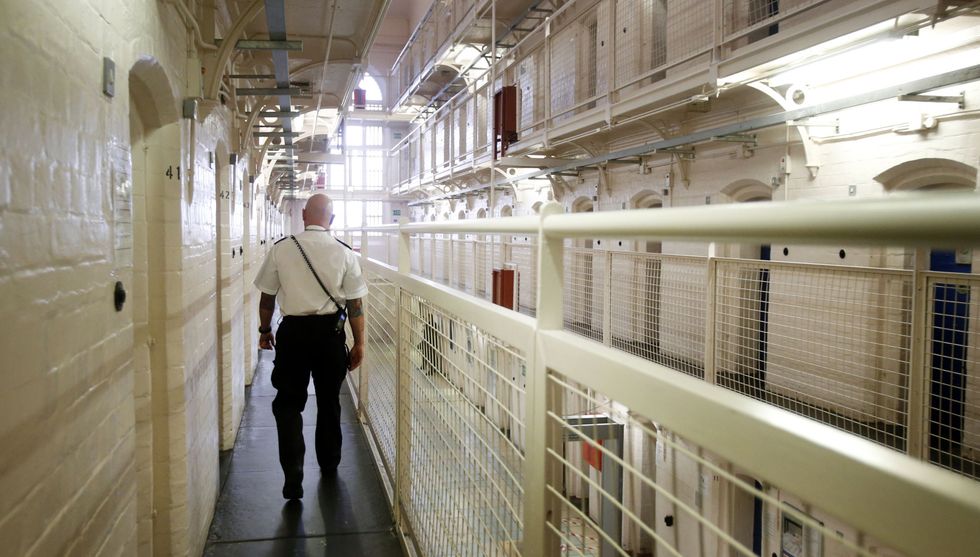Deputy Prime Minister Dominic Raab has backed a style guide for people behind bars, telling guards to call criminals 'prisoners'
Don't Miss
Most Read
Prison guards have been told to call criminals behind bars prisoners in a crackdown on woke words.
Ministers have produced a style guide slamming some of the language used by guards in Britain as "wishy washy"
Some of the specific words criticised in the report are "resident", "client", and "service-user" describing inmates.
The report also vows to crackdown on "room" being used to describe a jail cell.
Prison Governors Association president Andrea Albutt said: "The word prisoner is inoffensive, it refers to everyone who’s in prison – whether they are on remand and unconvicted or convicted.
Inside a prison
Danny Lawson
‘It doesn’t really matter what crime they may have committed – they are a prisoner. We’ve had residents, we’ve had clients, we’ve had service users – all sorts. It muddies the water."
A government source said: ‘The Justice Secretary is determined that our prisons up their game in rehabilitating prisoners to drive down re-offending, cut crime and protect the public.
‘But wishy-washy, politically correct phrases like “room” or “client” dent public confidence in our ability both to reform and to punish those who have broken the law and caused harm to others. The Justice Secretary believes in calling a prisoner a prisoner.'
Services and treatment of prisoners with mental health conditions must be urgently addressed, according to a report by an independent welfare body.
The Mental Welfare Commission (MWC) visited Scotland’s 15 prisons, 10 years after making recommendations for changes to their mental health services in 2011.
Deputy Prime Minister and Justice Secretary Dominic Raab
Joe Giddens
A decade later, the report, released on Thursday, criticised services, saying they continue to fail staff and prisoners.
The research showed a significant majority – 77% – of the prison staff who were interviewed by the commission reported that they had concerns about mental health support within the prison they worked in.
This included concerns over waiting times, communication between Scottish Prison Service (SPS) and NHS, and the need for more therapeutic activity.
The report also spoke about how the pandemic “exposed the fragility of the mental health resources” in prisons and how under-served and under-resourced they are.
One of the most notable concerns noted were staff fears about their ability to keep prisoners safe from the effects of new psychoactive substances (NPS) entering prisons.
Out of the 223 prison staff interviewed for the report, a total of 69% said they were “extremely concerned” about the use of NPS in prisons.







































